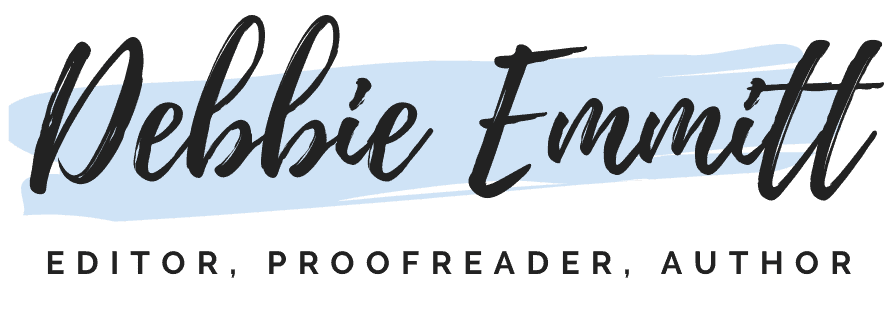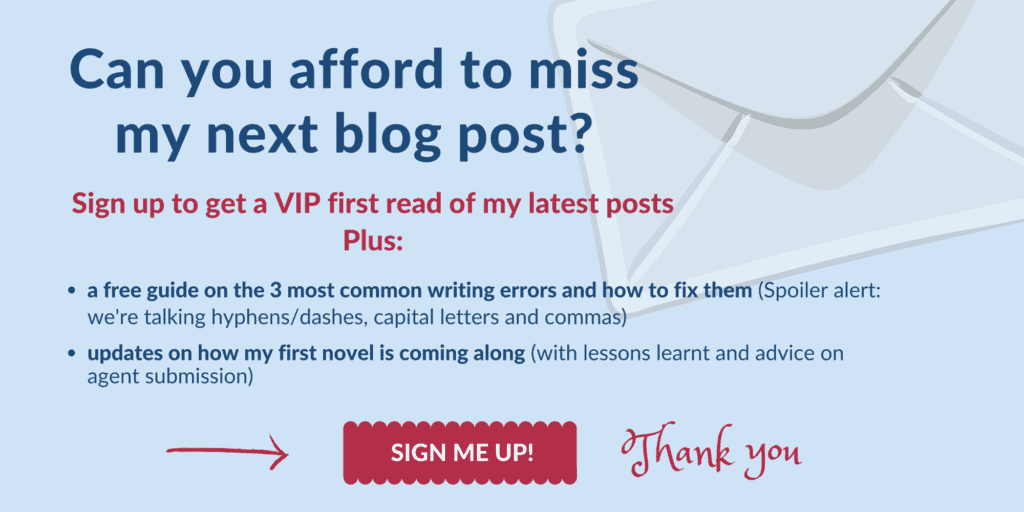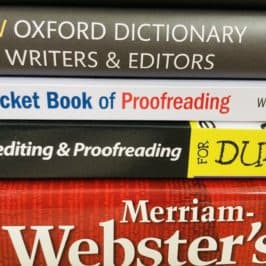
Are you in two minds about whether you need to hire an editor for your book? Here are 23 reasons why hiring a professional editor makes sense.
You’ve spent months (more likely years) on your manuscript. You’ve checked it yourself over and over, so you’re sure it’s error-free and the best it can possibly be. But is it?
Why editing your own work isn’t enough
Even professional editors who are also writers hire an editor for their manuscripts. They recognise that we all have blind spots when it comes to our own work, and another professional pair of eyes coming fresh to their copy will pick up lots of issues they aren’t aware of.
Also, editing isn’t only about finding typos and grammatical errors. Depending on the level of editing, an editor will:
- Check your manuscript for issues to do with story structure, character arcs, plot and order of events (developmental editing)
- Look in depth at every line of your manuscript and suggest stylistic improvements, focusing on aspects such as grammar, flow and word choice (line editing)
- Check grammar, spelling and punctuation, and look out for issues of repetition, contradiction, and other inaccuracies (copyediting)
- Check the final designed proof (the book as the reader will see it, e.g. in PDF format) for any language issues that have been overlooked or introduced up to this point, plus check for issues with formatting, layout, page numbering, headings and more (proofreading)
23 reasons to hire an editor
If I haven’t already convinced you, here are 23 reasons to hire an editor or proofreader, in no particular order:
1. Better chance of good reviews
If you’re self-publishing and don’t put your book through a professional editing process, it will contain errors. It just will. There are issues that an experienced editor will pick up on that you wouldn’t have even considered.
Even if readers don’t spot any typos or grammatical errors, they may instinctively feel that your book doesn’t flow or isn’t engaging and will put it down. What comes next? Bad reviews. And bad reviews equal poor sales. Social proof is everything!
2. Increased chance of selling more books
If your book has been through the professional editing process, people will enjoy reading it more and, in turn, will recommend it to others.
Readers often find books ‘page turners’ or captivating without realising why. The (hidden) answer is usually because there are few filler words to make the manuscript longer than it should be, the story structure is sound, the character arcs are engaging and the plot points are timely. An editor can help you to get your manuscript to this level.
3. Fresh pair of eyes (professional ones at that)
You may be the only person who has read your manuscript, or maybe your family and friends have taken a look too. Because you’ve read it so many times, you no longer see the issues, whether typos or deeper problems. Your friends will not have read it slowly and closely at least twice through.
An editor is a fresh pair of eyes on your book, and they are skilled in reading manuscripts multiple times, checking for different issues at each pass.
4. Saves you time
While an editor is working on your manuscript, you can be getting on with something else. This could be starting your next book, marketing prep for when you self-publish, or drafting query letters to agents.
While an editor is working on your manuscript, you can be getting on with something else. From: 23 reasons to hire an editor or proofreader Share on X5. Saves you money
It may sound counter-intuitive to say that having your book professionally edited will save you money, as it is an expensive service (due to the time, skill and effort it takes when done properly), but it’s true.
Firstly, time is money, so if you’re saving time (see point 4 above), you’re saving money. Secondly, you’ll sell more books in the long run (see point 2 above). Thirdly, a good editor will teach you more about the craft of writing, which will improve your future books (saving you time writing them, selling more copies…you get the idea).
6. Saves you frustration
Writing and editing are completely different skills. A few people have both skill sets, but not many. Most people are naturally either a writer or an editor. Many writers find it frustrating to keep going through their manuscript, finding all the different types of errors (grammar, spelling and punctuation mistakes, repetition, inconsistencies, factual inaccuracies, plot holes, structural issues etc).
Editors check for all these elements and more, saving you the headache.
7. Improves your writing (teaching craft)
No matter if this is your first book or your fiftieth, you can always learn more about the craft of writing. A professional editor who has been editing manuscripts by all kinds of authors for years will have vast experience in the writing craft.
Editors also tend to be avid readers and many are writers too. All this education will be brought to bear on your book, and through their suggestions and comments you will gain new knowledge that you can apply to this book and future ones.
8. Honest feedback
Your friends and family may have read your book but, with the best will in the world, they’re biased. They may think they’re offering an impartial opinion but, of course, they aren’t.
A professional editor will give you honest, unbiased feedback, which may sound scary, but there’s no need to feel that way. Professional editors have a single goal: to help you make your book the very best it can be. We’re not here to judge or pick holes.
9. Professional service
If you select an editor who has years of experience, is trained in the art of editing, and edits your particular genre, you can be sure that you will receive a professional service. If you aren’t sure about taking that leap, ask a shortlist of editors to carry out a sample edit for you.
Most editors charge for this service (I do), as editing is time-consuming when done properly (you wouldn’t ask a decorator to sample-paint a wall for free), but the editor you hire will likely deduct the cost of the sample edit from the full cost of the project.
10. Gives you peace of mind
Rather than wondering whether your manuscript is full of errors, plot holes and inconsistencies when you send it to an agent, submit it to a writing contest, or self-publish it on Amazon, gift yourself some peace of mind by hiring an editor to iron out these issues.
11. Up-to-date skills and knowledge
Professional editors take it upon themselves to keep up to date with the latest language changes, writing and editing tools, and publishing trends. You may not have the time or inclination to keep abreast of these neverending changes, but it’s the business of an editor to do so.
12. Specialist knowledge
It’s advisable to hire an editor who has specialist knowledge of your genre, content or style of writing. For example, I have a specialist arm to my editing business of editing books set in France. I have a degree in French and Portuguese from the University of Oxford, and I have lived and worked in France. I will spot errors in books set in France that other editors may not notice.
I’m also working on my own book, a mystery set in the South of France, so I particularly enjoy editing mysteries and thrillers. However, an editor who specialises in romance fiction will have a far better grasp than I would on the tropes and conventions of that particular genre.
Ideally, you should hire an editor who has specialist knowledge of your genre, content or style of writing. From: 23 reasons to hire an editor or proofreader Share on X13. Checks for (much) more than typos
As touched on above, an editor doesn’t only look out for typos. Oh no. Depending on the level of editing, we look out for a host of issues, including grammar, spelling, punctuation, flow and tone issues, structural and plot issues, character arc problems, repetition, factual inaccuracies, inconsistencies and much, more more.
14. Consistent tone
You may have written your book over many months, even years (if you’re juggling a job, dependants, life in general), and it’s difficult to retain a consistent tone when you’re writing in such a piecemeal way. Believe me, I know! An editor will set aside a window of time (I take four to six weeks to complete a copyedit of a 100,000-word book) to carefully work through your manuscript.
This dedicated, focused way of working enables an editor to detect any changes in tone or authorial voice and suggest ways of bringing consistency to your book.
15. Valuable feedback
An editor doesn’t only make suggestions via tracked changes. They also comment profusely (at least, I do!) to explain why they have made certain changes and to suggest improvements above and beyond mere typos.
Depending on the level of editing, this feedback could be regarding the structure of your book (developmental editing), the flow and style of the writing (line editing), technical issues such as grammar, spelling, punctuation, conciseness (copyediting), and formatting, layout, design and mopping up (proofreading).
16. Collaborative process
Editing is very much a collaboration. Your manuscript remains 100% your own work through the whole process. A professional editor will work with you, making suggestions (not dictating changes) and offering friendly advice. You are completely free to accept or reject any suggestion that your editor makes.
My clients often comment on my friendly, collegial approach and feel that we are working together on their manuscript to make it the best it can be.
Editing is very much a collaboration. Your manuscript remains 100% your own work through the whole process. From: 23 reasons to hire an editor or proofreader Share on X17. Sounding board
If you have an idea or suggestion to improve your book, but aren’t sure if it could work, run it by your editor. They will be happy to offer their professional opinion, which is likely to be based on years of experience and training. You have the attention of your editor: use it!
18. Better chance of being traditionally published
If you are planning on going down the traditional publication route, your publisher is likely to have their own editors who work on acquired manuscripts. However, you have to get the attention of a literary agent and a publisher in the first place. Especially if this is your first stab at a book, it is advisable to hire an editor to work through your manuscript before querying an agent.
Many editors offer a service to edit the first 10,000 words of your manuscript, as agents often request to see this part of a manuscript first, before reading the whole thing. This service works out less expensive than paying for your whole book to be edited and will give you lots of pointers on how to tidy up the rest of your manuscript.
19. Concise, shorter manuscript
You know how it is. You get carried away with your story, and next thing you know, it’s 150,000 words long. Unless it’s in the fantasy genre, this length is likely to put off an agent or reader. It’s difficult to “kill your darlings”, and time-consuming to drastically cut thousands of words from your manuscript.
A professional editor can help you shorten your manuscript by getting rid of filler words, unnecessary scenes, dialogue and description, and subplots that haven’t earned a place in your book.
You know how it is. You get carried away with your story, and next thing you know, it's 150,000 words long. From: 23 reasons to hire an editor or proofreader Share on X20. Sets you apart from the rest
If you’re self-publishing, the competition is fierce. Anyone can put their book out there, but not everyone hires a professional editor.
Making the decision to take your book seriously and give it the best shot of being noticed by potential readers (or agents and publishers if you’re going down the traditional route), will put you head and shoulders (at least) above your competition. I’ve read so many one-star reviews on Amazon of self-published books that clearly haven’t been professionally edited. Your book will beat them.
21. Provision of a style sheet
Most editors will provide you with a style sheet. This document lists editorial decisions made during the edit, including formatting, punctuation, spelling and much more. If your book is fiction, the style sheet is likely to also contain a short description of your main characters to aid consistency, a list of key locations in your novel and a timeline of main events.
This document is invaluable, not only for the editor to keep track of all these elements and ensure consistency during the project, but to retain consistency during future rounds of editing and proofreading. It is especially useful if you’re writing a novel series.
22. Natural dialogue
You could have written the most interesting story in the world, with suspense, excitement, great characters and brilliant twists. However, if your characters don’t sound like real people, you’re unlikely to engage readers or literary agents.
A professional editor will help you to ensure your characters sound realistic, talk in keeping with their background, location and life experience, and don’t bore your readers with unnecessary mmms and ahhhs.
23. Access to the editing network
We editors are a friendly bunch. It’s highly likely that the editor you hire knows a host of other editors.
If you’ve hired a developmental editor who doesn’t line edit, copyedit or proofread (and it’s unlikely you’ll find someone who offers all these services), they can probably recommend a fellow editor for the next step in the process. Or, if you’ve written a mystery novel but fancy trying your hand at romance next time, your mystery editor is likely to know someone who has years of experience editing romance novels.
Over to you
Do you have experience working with a professional editor? How did you find it? Or are you in two minds about whether to hire an editor or proofreader? Drop your thoughts in the comments!
PS. For the story of why there is a cute dog in the photo for this article, check out my LinkedIn post.









william phiri
Hello Debbie, ok so I am writing you from Botswana. First of all, you are doing a commendable job with your website I must say. Long story short, I am an author of a few works of fiction badly in need of editing, proofreading, typesetting, copy editing and whatever else that goes into preparing an ebook for kdp for instance. So, if I was in need of any of the above mentioned services or even all of them, how would you go about providing me these services considering the fact that I am in Africa and you are in UK, and how would your costs or quotation look like? I am writing you also because I need services with an international touch or standard if you may.
Debbie Emmitt
Hi William, thanks for your query. I can certainly help with line editing, copyediting and proofreading. I have worked with clients all over the world (Nigeria, China, US, Australia, New Zealand, France and many other countries), so location is not an issue. We can communicate via email (and video call if need be), and manuscripts are sent as Word documents. You can see indicative prices on each of my service webpages, e.g. https://debbie-emmitt.com/editing-and-proofreading-services/book-copyediting/, although these can go up or down depending on each individual project.
If you send a query via my contact form, with details of total word count of each of the first couple of books, we can begin a conversation via email. I look forward to hearing from you soon!